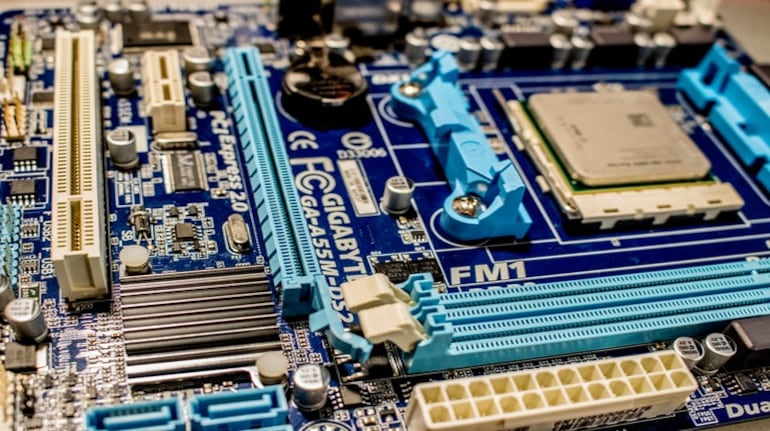



Mergers and acquisitions, like in any industry, are not new in the semiconductor world. As per an analysis published recently, ‘After slowing significantly in the last half of 2021, the pace of megadeals for semiconductor mergers and acquisitions regained momentum in the first six months of 2022….So far this year, four large agreements have been announced — each valued between $1.9 billion and $9.4 billion, pushing the combined 1H22 M&A total to $20.6 billion’.
It further said that ‘The second-largest chip acquisition agreement in 1H22 was Intel’s $5.4 billion deal to buy pure-play wafer foundry Tower Semiconductor in Israel’.
Intel has traditionally been an Integrated Device Manufacturer (IDM), which used its chip fabrication facilities (fabs) almost exclusively to manufacture its own integrated circuits (ICs). Samsung, on the other hand, is an IDM that offers its fabs as foundry — that is contract chip manufacturing — in addition to making its own semiconductor products.
The Taiwan Semiconductor Manufacturing Company (TSMC) is a pure play foundry that does only contract chip manufacturing, and is the leader in the foundry segment of semiconductor business.
Within the past half a decade or so, Intel had fallen behind TSMC and Samsung in the advanced node chip fabrication race. As part of its revival plans, Intel’s IDM 2.0 strategy was announced in March 2021, which included ‘establishing a new standalone business unit, Intel Foundry Services (IFS), led by semiconductor industry veteran Dr. Randhir Thakur’
In February, IFS announced plans to acquire Tower Semiconductors, which is among the top-10 foundries worldwide. Though some analysts have expressed concerns of Chinese regulators possibly denying or delaying approvals as part of US-China chip war, by and large the deal is expected to close in the first quarter of 2023.
As per numbers released by Trendforce, Tower Semiconductors has a third quarter revenue of $427 million. IFS reported a revenue of $171 million for the same period. The acquisition if completed by now could take IFS to seventh in foundry standings by revenue, behind TSMC, Samsung, the United Microelectronics Corporation (UMC), GlobalFoundries, the Semiconductor Manufacturing International Corporation (SMIC), and the HuaHong Group
Thakur had said that IFS wants to be the world's second-largest foundry by the end of the decade, ahead of Samsung which currently has a 17 percent market share in foundry revenue but behind TSMC which has around 54 percent. However, Thakur recently resigned as the head of IFS with an expected handover to his successor in the first quarter of 2023.
That news combined with the expected closure of Tower’s acquisition has now lead to speculation among analysts that once the deal goes through, it may be Tower’s management that would be running IFS as they are much more experienced in foundry, and have a good customer base
As of now Tower Semiconductors focuses on making semiconductor chips for applications like radio frequency (RF), analog, power management, image sensors and so on, and for many of those, 65nm and 45nm technology nodes that it owns are the state of the art.
If the Tower management indeed gets to run IFS, there is a possibility that more mature nodes such as 22nm and 14nm that Intel had once used for its processors, could be offered for foundry in addition to the 16nm and advanced node foundry plans that IFS already has in place.
Tower Semiconductors is also part of the International Semiconductor Consortium (ISMC) which is one of the three applicants for incentives for silicon-based semiconductor fabs under the schemes announced by the Ministry of Electronics and Information Technology (MEITY) in December, 2021. ISMC has proposed a 65nm analog-centric Silicon fab in Mysuru, Karnataka.
Until the deal is closed, Intel and Tower operate as independent companies, and so Intel was not in a position to endorse Tower Semiconductor's plan for India despite Intel CEO Pat Gelsinger meeting Prime Minister Narendra Modi in April as reported earlier. However Intel's corporate Vice President for Asia Pacific region Steven Long was recently quoted saying, "We are seeing design and manufacturing opportunities for our partners here in India".
The mention of a manufacturing partner could be interpreted as an endorsement of Tower’s and ISMC’s plans for India. There may even be a future possibility of IFS considering technology transfer or joint ventures through its partner for 22nm or 14nm logic-centric fab also with India, if MEITY is able to clear the existing 65nm analog-centric fab proposal which it received 10 months ago, without any further delay.
The India Semiconductor Mission (ISM), which is the nodal body in charge of India's semiconductor programme, has not had a CEO, CTO, or CFO with global semiconductor industry experience as it had wished for. Whether MEITY may offer any such role to Thakur once his transition out of IFS is complete is another aspect to watch for, though many opine that the Government of India may want only Indian citizens to head the ISM.
Tata Electronics recently confirmed its plans to get into Outsourced Semiconductor Assembly and Testing (OSAT) business, and also stated that it will "look into the possibility of eventually launching an upstream chip fabrication platform". Thakur may be a good fit to drive Tata's chip fab ambitions unless both have other plans already.
Discover the latest Business News, Sensex, and Nifty updates. Obtain Personal Finance insights, tax queries, and expert opinions on Moneycontrol or download the Moneycontrol App to stay updated!
Find the best of Al News in one place, specially curated for you every weekend.
Stay on top of the latest tech trends and biggest startup news.